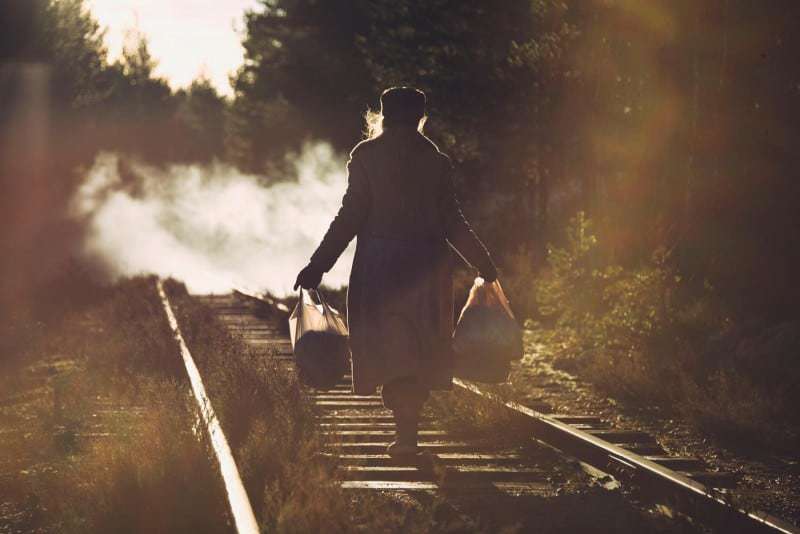Easily the winner of the “most evocative title of the festival” award, Granny’s Dancing on the Table tells two stories: the present-day struggles of thirteen-year-old Eini (Bianca Engström) who lives alone with her abusive and religious father in rural Sweden, and Eini’s accounts of her grandmother’s (Karin Bertling) colorful adventures in decades past.
Granny’s story is recounted in lively stop-motion animation, in the film’s most vibrant and compelling section. When Granny was a young girl, she moved far away from home with her sister. They were taken in by a man who seemed nice until he married Granny’s grown sister. Yet Granny was the one who got pregnant, forced by their guardian to give it up because she was single: the baby was Eini’s father, and he was raised by his aunt.

Granny left to travel Europe, writing home to her sister frequently about her exploits, which seem to have involved exotic dancing and maybe some prostitution. Whatever her struggles, Granny maintained her chutzpah and sense of self, an inspiration to Eini whose spirit is crushed on a daily basis.
Like her grandmother, Eini too is rebellious, quietly refusing to abide by her father’s every order even though she knows it will earn her a brutal beating. Even Eini’s wardrobe choices, sometimes bold colours, seem a mark of her rebellion. Eini only knew her grandmother for a few years, but it left an indelible mark. Granny instilled in Eini a sense of self-worth, the knowledge that she deserves better than what her father offers her.
Eini’s story is filmed in live-action, told in muted, grayish colours against a beautiful landscape that feels eerie because of her circumstances. Director Hanna Sköld regularly places Eini’s father as the dominant figure in the frame, with Eini lingering in the background, always under his powerful thumb. Even when her father is calm, Sköld makes him a menacing presence.
On the cusp of puberty, Eini is due for a change.. When she starts to menstruate for the first time, her experience is filled with shame as she’s forced to hide the evidence from her father. We’re left to wonder if she’ll be able to muster up the courage, using her Granny’s example, to get herself out of the bad situation she finds herself in
Granny’s Dancing on the Table marks the arrival of a new talent in first-time writer-director Hanna Sköld. Though Eini’s struggles often feel underdeveloped — it’s bleak, but we’re never quite sure of her thoughts or dreams — the stories of Granny are terrific. Sköld gets good performances out of her actors while proving herself adept at telling a feminist story of multiple generations, cycles of abuse in a family, and emancipation in more than one medium.
Granny’s Dancing on the Table had its World Premiere at the Toronto International Film Festival. It is still seeking North American Distribution. Nordic Factory is the US Sales Agent.
Read more: Terril Calder on her stop motion animated short SNIP >>

